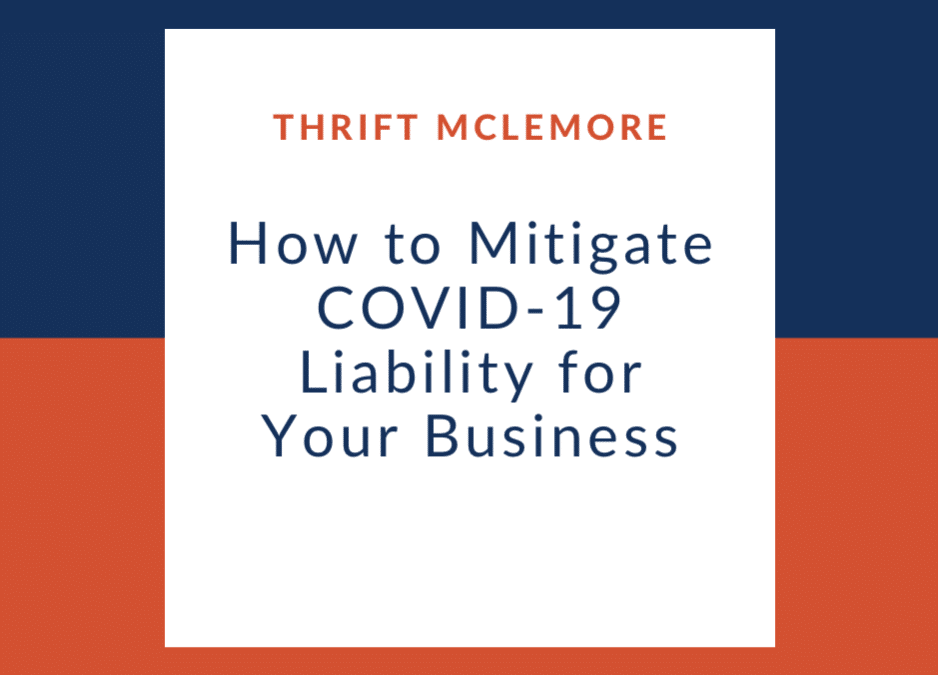If you have ventured out during the pandemic to go shopping, grab take-out, or social distance with friends, you have probably noticed prominent COVID-19 warning signs posted near the entrances of many local businesses. If you wondered whether a warning sign has any impact on a business owner’s liability if someone contracts Coronavirus while visiting that business, or if you should put one up at your business, this article is for you.
When businesses started re-opening after the shutdown, many business owners worried they would be sued if someone allegedly contracted COVID-19 on their premises. To ease these fears, several states enacted laws to protect businesses from COVID-19 liability claims.
For example, Georgia became one of these states when Governor Brian Kemp signed the Georgia COVID-19 Pandemic Business Safety Act. The Act, now law under O.C.G.A. § 51-16-1, provides general immunity from COVID-19 liability claims to individuals, healthcare facilities, healthcare providers, and business entities (such as corporations, LLCs, partnerships, etc.). It broadly covers all causes of action relating to COVID-19, including transmission, infection, exposure, or potential exposure to COVID-19, any mutation of COVID-19, and any disease or condition caused by COVID-19 on the premises of any entity or individual.
So long as there was no gross negligence, willful and wanton misconduct, reckless infliction of harm, or intentional infliction of harm, this Georgia law creates a rebuttable presumption of assumption of the risk by the person filing the lawsuit when a business did one of two things: (1) posted the statutory warning at the point of entry; or (2) included a receipt or proof of purchase for entry that includes the statutory warning.
The warning sign at the point of entry must be written in at least a one-inch tall Arial font, be placed apart from any other text, and must include the following language: “Warning. Under Georgia law, there is no liability for an injury or death of an individual entering these premises if such injury or death results from the inherent risks of contracting COVID-19. You are assuming this risk by entering these premises.” The Georgia law has similar requirements for the receipt or proof of purchase for entry option.
While the consequences of not complying with these specific Georgia requirements are still unknown, we recommend having a larger, more conspicuous warning sign than your state statute dictates. We also recommend placing the sign at the point of entry where it will be most prominent.
If your state has a similar statute, placing a warning sign at the point of entry of your business is a simple way to help protect your business from liability.
For more information about how you can mitigate your premises liability, contact our office. Thrift McLemore’s COVID-19 Response team is available to help Georgia and Florida businesses, startups, and individuals during this global pandemic.









